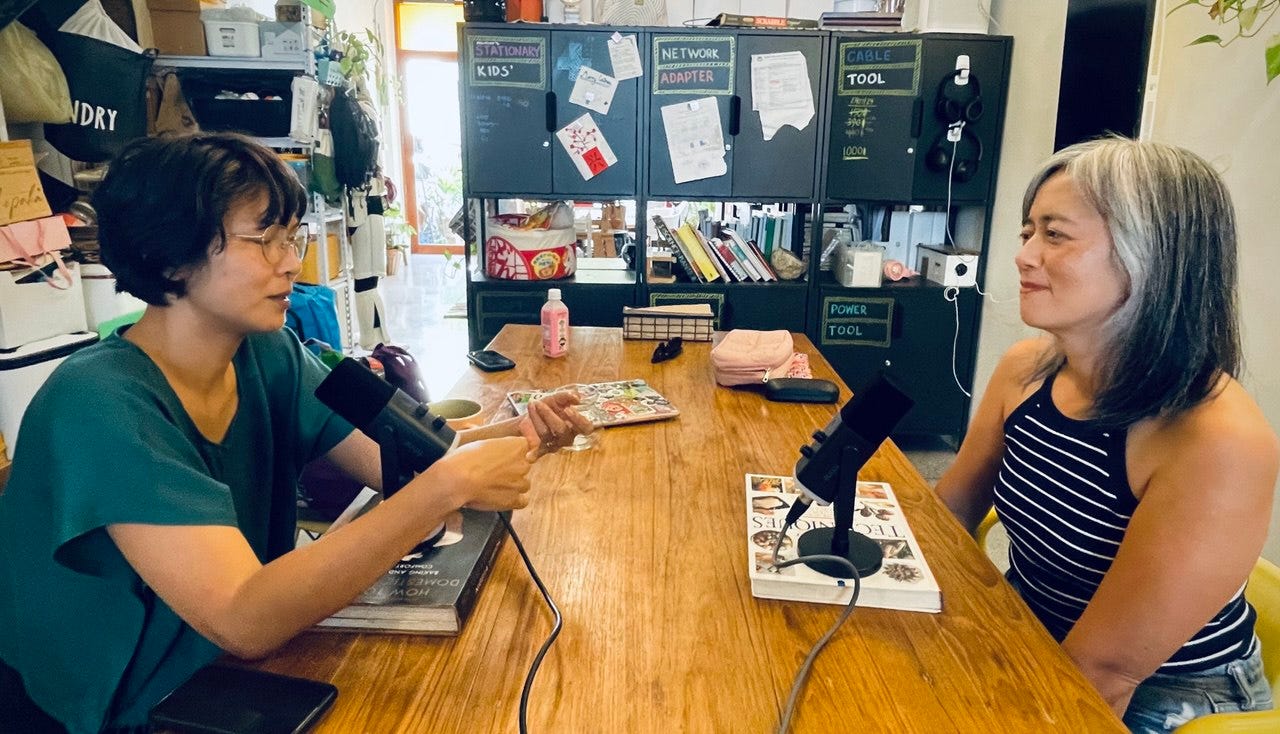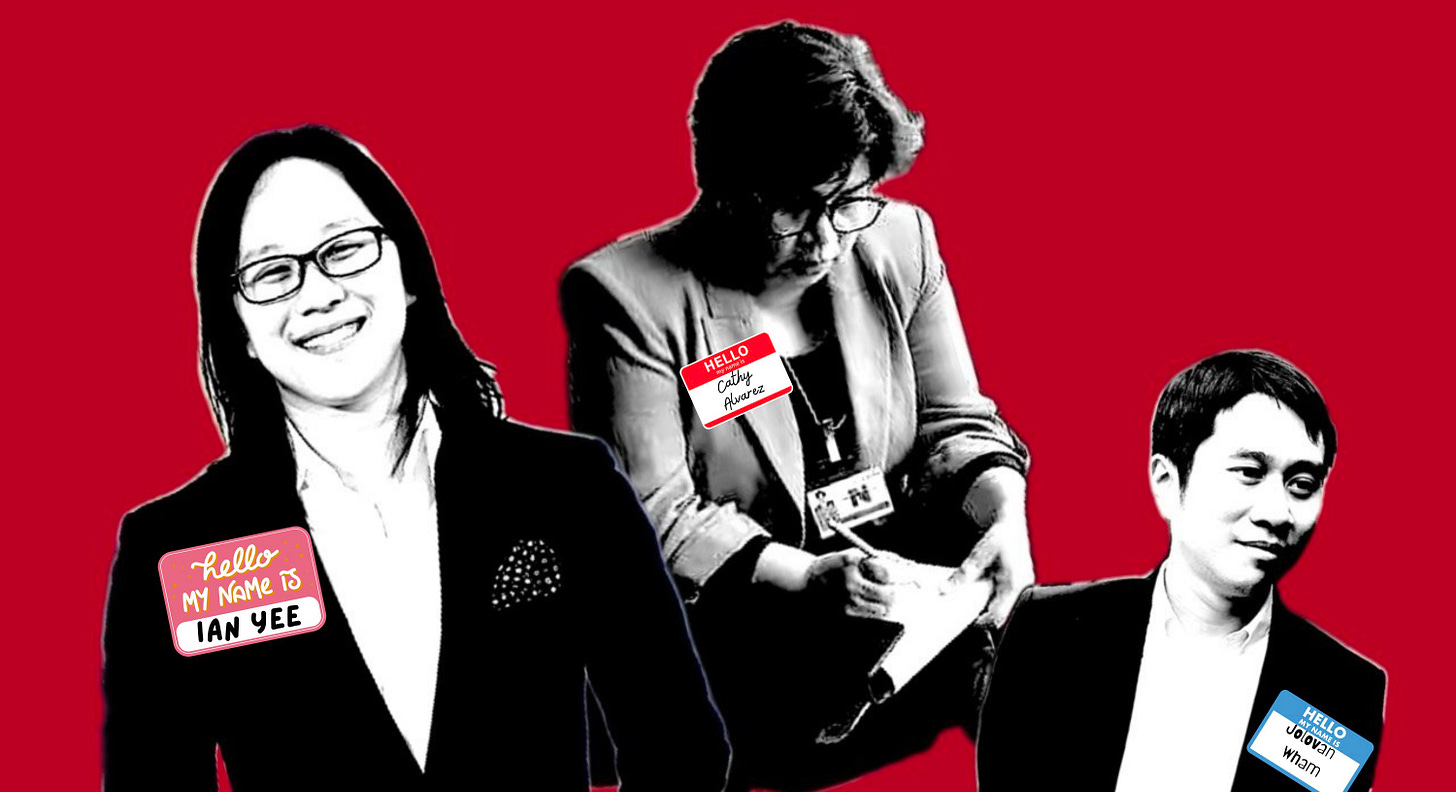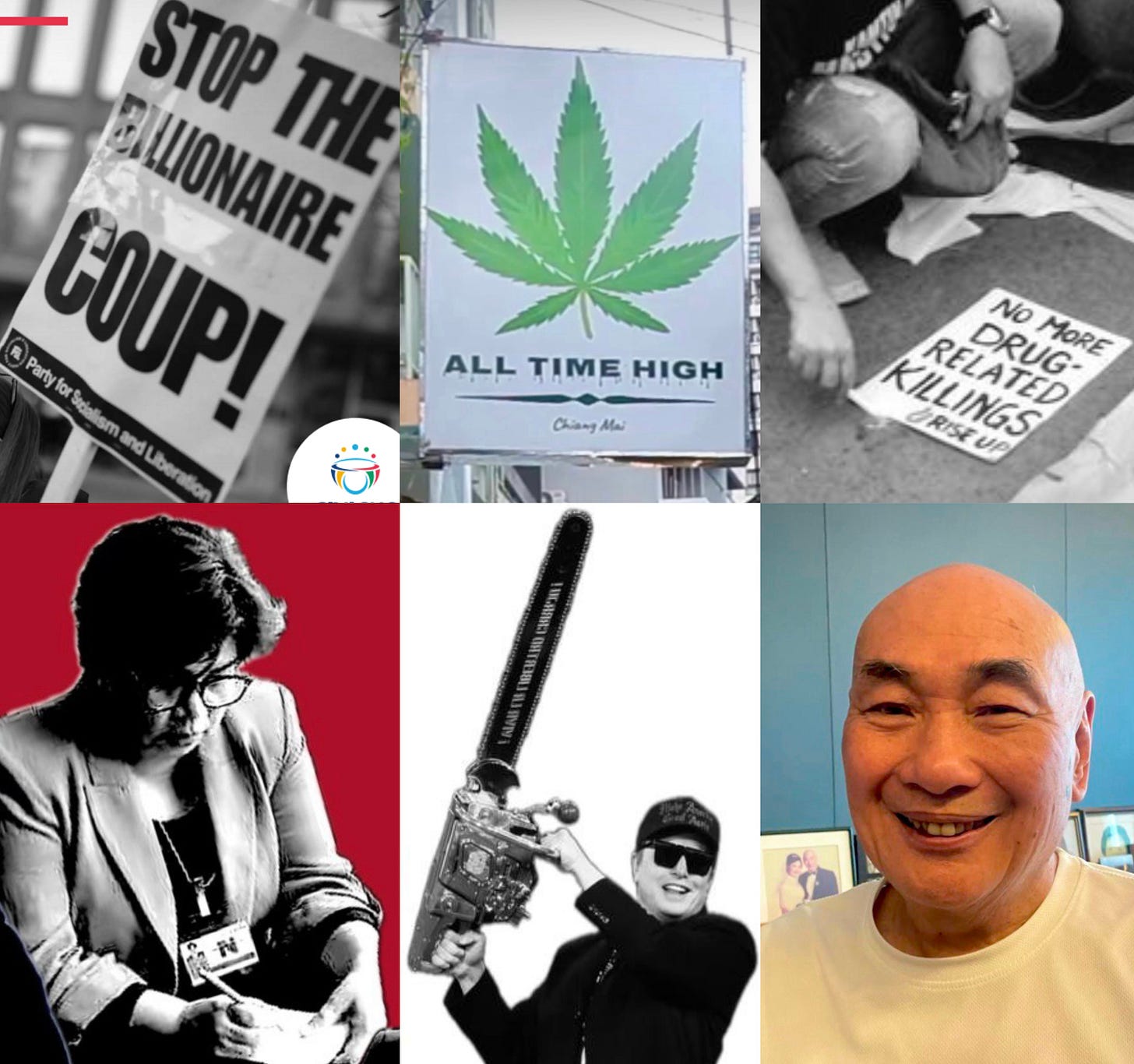Looking Back, Looking Forward, And Where to Go From Here?
It’s been a month and a half since this newsletter and podcast series was launched — now you can help shape what comes next
Today marks six weeks since I launched this newsletter, so happy six-week-iversary!
It’s been an interesting experience getting things up and running; encountering some setbacks here, while stumbling into a bit of luck there…
For this week, though, I’m sending out a fairly light issue, that looks back on some of the work I’ve already published, shares some of the ideas I have in mind for the future, and is putting the call out for suggestions — for the sort of things you’d like to see covered.
I also recently discovered this site has a function that allows me to embed polls, so and at the risk of taking this gimmick too far then I’ve set up a few in order to get an idea of what you’d like to see more of from Currents. So please, give your feedback in these anonymous* polls!
(*They’re anonymous, right? Yeah, they’re probably anonymous, let’s go with anonymous…)
Noising (futile attempts to not talk too much)
Fans of my dulcet tones, rejoice — there have been five podcast episodes released so far, with more to come.
The first was an interview with Lim Kay Siu, a Singaporean actor who, in recent years, has become far more outspoken about getting involved in human rights activism. This was followed by a two-parter examining Thailand’s decriminalisation of cannabis — a podcast that turned into a far more in-depth policy discussion than I’d expected when I first had the idea (links for part 1 and part 2).

“One of the first things we really looked at was the disproportionate that laws and policies have on people compared with the so-called ‘harms’, that governments would have us believe are caused by the use of drugs.” — Gloria Lai
The two most recent podcast episodes featured two human rights advocates from the Philippines reflecting on the arrest of former Philippine president, Rodrigo Duterte, and looking back on their traumatic experiences of his devastating drug war (links to part 1 and part 2).
One of the things I’ve noticed is that I could listen to the people I’m interviewing talk for hours. And they probably could talk for many more hours, if time allowed, due to a mix of being experts of the topics we’re discussing, and have had such incredible experiences over the years. Every podcast episode can be quite a lot of work to produce, but they’ve also been hugely enjoyable and rewarding to produce, too. I’ve usually capped the episodes at around the 45–50 minute mark so far, sooo…
Snap poll: For podcasts, do you prefer to have the conversation split into multiple episodes released weekly, or to have everything released as one, usually pretty long (maybe around 90 minute to two hours), episode?
Wording (reminding myself how to string a few sentences together)
Going from writing multiple shortish articles or sub-editing scripts for TV news reports every day to now, writing one or two longer-form newsletter articles a week. I’m mostly happy with the pieces I’ve published so far — but the most popular piece has turned out to be one that didn’t take all that much work, because I mostly just sent questions and collected answers.

What's one thing people might be surprised to learn about you?
“If a PAP politician was handsome enough, I would vote for him.” — Jolovan Wham
‘How Activists Stay Activated’ was a fun piece to do, and I think this carried across in the article. I’m glad I can introduce people to the activists doing great work across the region and approach it, from time to time, in a more light-hearted way.
Snap poll: Tell me about the type of written content you’d like to see more of in the poll below (sorry you can only pick one)!
Going forward
This is still very early days, and, in many ways, I’m still finding my feet with this format and this new (for me) way of working.
So far, I’ve loved it — it’s opened up editorial choices I would’ve loved to have adopted while working for other media outlets and scratches a journalistic itch that’s been bothering me for some time. It’s a privilege to profile incredible people and movements and while it’s quite a lot of work and pretty time-consuming, I enjoy this sort of thing.
Topics I’m planning to look into over the next few weeks or months include:
The current situation in Myanmar, and how the junta is holding on to power
Youth political movements in Thailand, and how things changed leading up to and after the 2023 general election
The changing face of politics in Indonesia, which led to Prabowo Subianto being elected as president
The harassment of activists in Singapore
Free speech advocates covering Vietnam
LGBTQ+ rights in Malaysia
I’m now thinking about how I can take things up a notch; not just in terms of brainstorming ideas, but actually thinking about how I turn these ideas into reality. Some of the things I’d like to do more of in the future:
Feature reports
More video work
Releasing new podcast episodes once a week, or at least fortnightly
A lot of this comes down to funding and sustainability. I’m a very much a dinosaur who swore off social media many years ago, so trying to promote Currents and pick up readers and subscribers… has been a bit of a learning curve. As such, you’d really be doing me a big favour if you follow Currents on social media and share/repost the stuff on there (here’s a rather underwhelming Instagram page; I promise to update it soon!).
What’s in it for you?
This work doesn’t happen in a vacuum, so I’m also looking for suggestions and feedback. Of course, I’d love it if you had a red phone sitting on your desk which, in cases of emergencies or brainwaves, you could pick up and holler “Get me Calum Stuart NOW!”, but until you can get a secure line set up and find a place that sells suitably ostentatious red phones then I’m still accepting feedback in simpler, digital ways.
One of the things I like about newsletters compared to conventional media is that this can be far more community-focused, with the ultimate goal being about how to get the word out to the Currents audience, start discussions about the issues raised, and build a community among people who care about and want to talk about these issues.
In all seriousness, your support is crucial for Currents to build and move forward. This is just the beginning, and there’s so much more I’m hoping to do with this space, including:
Long-form/investigative articles;
More podcast episodes in different styles and formats;
Video reports and short documentaries;
Helping build a space for artists, writers, poets and otherwise talented scribes to have their work published and promoted — for them to also get paid!
Becoming a paid subscriber, or leaving a tip, will contribute some funds to cover the production of articles and podcasts (and hopefully short videos) which highlight the work of human rights advocates in very challenging environments across Asia. Sharing this newsletter widely, encouraging your friends and family to read, listen and hopefully subscribe, will also be very much appreciated as Currents grows.
Thanks again for your support, and for helping to make this possible.






